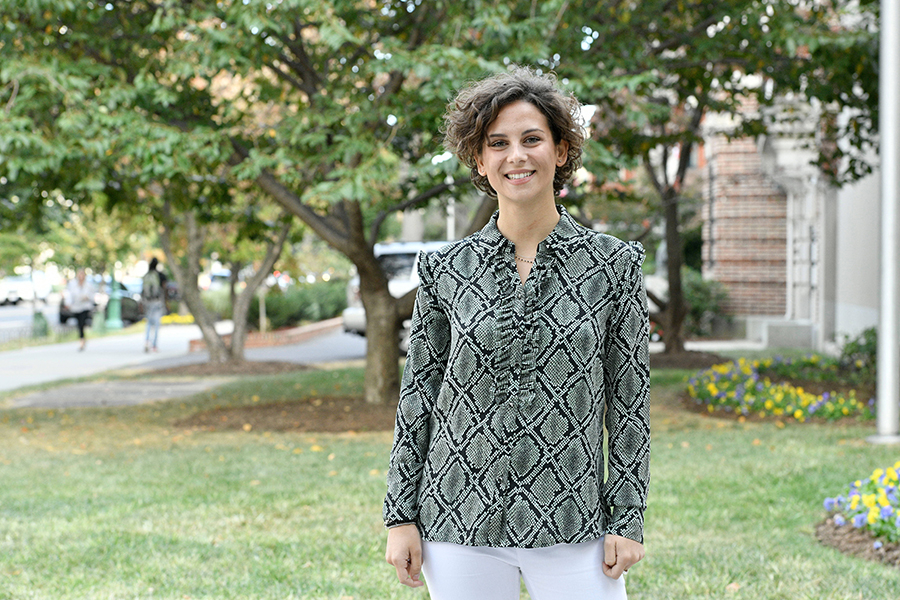Gaining a Unique Perspective on Two Continents

Eleana Balabani
MA '20
Conflict Management
First Year: SAIS Europe
Q: What encouraged you to apply to Johns Hopkins SAIS?
A: I had completed by undergraduate and postgraduate studies in the UK and I was undergoing a traineeship in the European Parliament. Given my very European background, as a native Greek who attended a European school in Brussels, both personally and academically the EU institutions were making sense. But while I was reflecting on my career and still torn between the world of practice and the world of ideas, I knew I needed to discover what lied beyond my comfort zone. When I found out about Johns Hopkins SAIS from a Greek diplomat in Brussels, I understood that pursuing a more policy, professional, and transatlantic masters and transitioning to the US after a year in Italy, would enhance my Eurocentric background while placing my ambitions into a better-defined career path.
Q: What have been some of the highlights of studying in the Conflict Management Program and at SAIS Europe?
A: The Conflict Management Program has enabled me to express my interests in understanding the multifaceted dimensions of violence and conflict and to focus particularly on the Balkan region, whose peace, democracy, and European Union path remain fragile and controversial. In fact, last semester I took a class on the Balkans taught by a former CIA agent whose historical and highly analytical approach to the region provided me with the depth and sophistication required to think about conflict, statehood, identity, and multiculturalism in an era of identity politics.
Nonetheless, perhaps the highlight of my graduate school experience so far has been SAIS Europe. For me, a Brussels-born Greek and a European at heart, I did not expect Italy to be any different to me. But it did, both academically and personally. Being exposed to the American approach of International relations while living in the heart of Europe was all of contradictory, challenging, and an enriching experience. Not only does SAIS Europe attracts professors and practitioners from all over Europe who visit the campus to teach their courses, but it offers a unique cultural experience. I had the opportunity to endorse the unique realm of Bologna in a time of Italian societal and political malaise, while learning the language through the unique language classes, which provided me with an enhanced Bolognese experience.
Q: What study trips and/or extracurricular activities have you participated in while studying at SAIS Europe or in Washington DC?
A: I was able to participate in the Sarajevo study trip during my first year in Bologna. The opportunity to interact with representatives of key international organizations in Bosnia, as well as locals, further exposed me to the need to re-examine the tools and values involved in state building. Moreover, I was fascinated by the kind of Balkan ‘fatalism’ that often characterizes the region, which is something very relevant in Greece as well. It is perhaps the excess of history that countries in South East Europe that have endured in comparison to their small geography.
In respect to extracurricular activities, I am grateful to have continued to play basketball wherever I have settled. In both Bologna and DC I was able to join basketball teams, through the University of Bologna and through the DC Fray Leagues respectively. These experiences have provided me with a more local insight and a reminder of the power of sports in bringing people together no matter the circumstances.
Q: What are you looking forward to in your last semester at the school?
A: As I continue to transition to Washington DC from Bologna and Europe more generally, and given the school’s rigorous and fast paced environment, I aim to seize to a greater extent the learning opportunities that I am exposed to while studying and living in the United States.